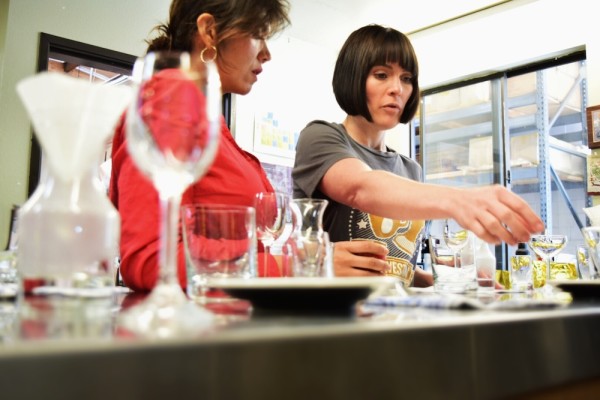by Heather Perry of Klatch Coffee and Klatchology
Yesterday we looked at what I call the practical side of being a good trainer. But there is another side, the emotional one. Below are my 5 tips for the emotional side of training, which apply to the trainer and the trainee alike. I know this sounds very gushy, but there are reasons that people with the same skill set have very different levels of success as a trainer:
Be invested
No matter who you are training and how many people you have trained, you are only as successful as they are. This doesn’t mean they have to win a championship, but are their customers happy? Do they feel as though they are a better coffee professional because of the time they spent with you? Don’t just go through the motions, but strive to make sure everyone walks away a success.
You set the tone
There are certain trainings I walk into and the trainee is excited to be there. They can’t wait to learn and they love asking questions. There are other trainings, though, where people are there because their boss sent them and they have about 100 other places they would rather be at that moment. Those are the times I want to pull the “Do you know who I am?” card. But instead of doing that — something I have never done, for the record — I realize these are the times that I really have to bring it: I come in high-energy with lots of questions, enthusiasm, and of course, lots of coffee. People will feed off of your energy, so make sure to establish it from the beginning.
Be an equal
No one in your session is in grade school and no one needs a hall pass to go to the bathroom, so treat people like adults and be their equal. Help clean and do dishes — no one likes a know-it-all who sits on a stool and bosses people around. Be on the same level and share your knowledge, don’t dictate it.
Be flexible
Trainings will never go the way you expect. They rarely seem to start on time and that is just the beginning of the things that can and will go wrong, including broken equipment. The keys are an open mind and flexibility. Don’t come in with a rigid training program and have the idea that you will spend X amount of time doing A, B and C, because everything will not run smoothly. Be prepared to make changes and improvise. As a side note, the more research you do ahead of time into the who’s, what’s, and where’s of your training, the fewer surprises you will have.
Look for opportunities to improve
Any time I have a trainee who is having trouble comprehending something, it means I need a new way to teach. There are certain key phrases that I use in most trainings, but rarely do I have two trainings that go the same. People learn differently so I have to teach differently and I always looking for keys both in and out of the coffee industry that I can use to help myself improve and be a more valuable asset to my trainees.
Heather Perry
Heather Perry is the Vice President and Director of Training and Consulting for Klatch Coffee, a 20-year-old Los Angeles based roaster and retailer. She is a four-time U.S. regional barista champion, a two-time United States champion, and placed second at the Barista World Championships in 2007. She is also the past chair of the Barista Guild of America, where she helped to design and launch their certification program.







Comment